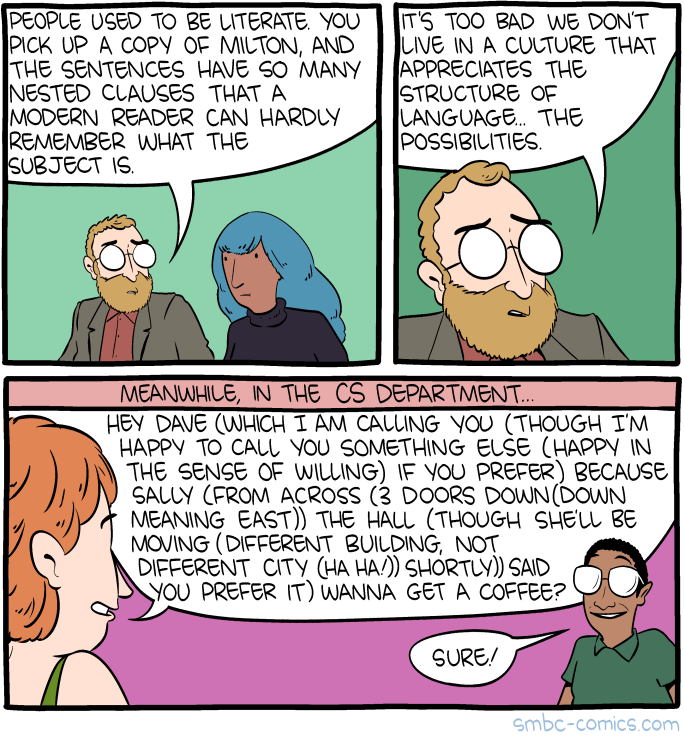My pet peeve for today, class, it the phrase “glossary of terms.”
A glossary is always of terms, so adding “of terms” is unnecessary (read “redundant”). You may, however, use “terms” if you include a limiting adjective. You might say “glossary of unnecessary terms,” for instance.
I like the strip Pajama Diaries. Once a month, though, Terri Libenson makes me cringe with her once-a-month series of that title. Here’s the latest:
If you care to see the whole series, here’s a link to them all. I think.
And “glossary” all by itself is just fine. Harrumpf.
PS: Did you notice that I repeated myself in that sentence just ahead of the comic? I don’t normally do that (it’s redundant), but it was a good chance to use the phrase “once a month” both as a compound adjective, and not.

